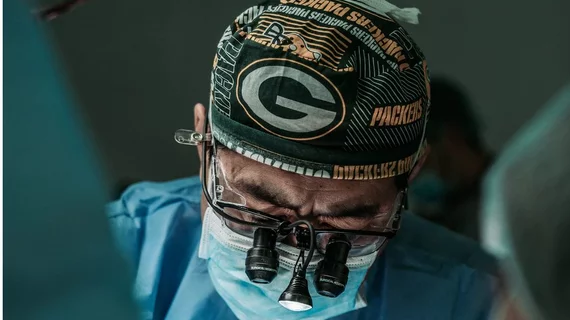Surgeons revive donor heart after death, complete successful transplant
Surgeons at UC San Diego Health have performed a successful heart transplant from a donor after circulatory death (DCD), the first time such a transplant has been completed on the West Coast.
DCD transplants involve removing the organ within 30 minutes of the donor’s death and connecting it to a machine that perfuses it with warm blood. TransMedics developed the technology used during the procedure.
“When it comes to how organs are procured and preserved from donors, this machine is changing the paradigm for heart transplants,” Victor Pretorius, MBchB, surgical director of cardiac transplant and mechanical circulatory support at UC San Diego Health, said in a statement. “Not only will this increase the number of hearts available for those in need, but it can also optimize the timing of the transplant operation and utilization of operating room resources.”
“We have people on the wait list dying while waiting for hearts, and this is because we don’t have enough donors,” added Eric Adler, MD, cardiologist and medical director of cardiac transplant and mechanical circulatory support at UC San Diego Health. “By utilizing the pump, we are able to use hearts that would not be considered for transplant and can assess the organ for any issues or damage to ensure we’re matching the organ with the most appropriate recipient.”
The transplant was part of an ongoing clinical trial funded by TransMedics. A total of 25 sites throughout the United States are participating in the trial, which is designed to compare DCD heart transplants with more traditional transplants.

